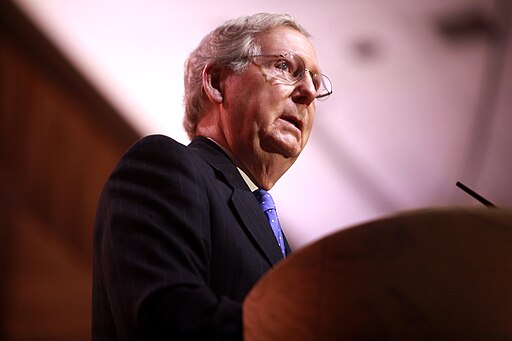
A couple of numbers from FiveThirtyEight‘s polling roundups:
56% of Americans polled disapprove of US president Joe Biden.
56.1% of Americans polled disapprove of former (and hoping to be future) US president Donald Trump.
Those two are their respective parties’ 2024 presidential nomination front-runners, and it’s not even close.
US vice-president Kamala Harris, who’s best positioned to replace Biden on the Democratic ticket if he drops out or dies in office, is just a wee bit less unpopular than those two with a disapproval rating of “only” 51.3%
Robert F. Kennedy Jr., who’s running against Biden for the Democratic Party’s nomination, is less unpopular yet — but more so with Republicans (23% unfavorable) than with Democrats (41% unfavorable).
On the Republican side, second-placer (so far) Ron DeSantis bests Trump with an unfavorable percentage of “only” 48.6%. Former US vice-president Mike Pence is even less popular than Trump or Biden at 58.5%.
I’m not old enough to remember people actually wearing “I Like Ike” buttons, and I’m just old enough to have trouble remembering who it was — it may have been Dick Morris — who said in the early 2000s that if your unfavorable rating is above 35%, you shouldn’t bother running for president.
This year, the only “serious” “major party” candidates who seem to be getting under that wire are on the Republican side: Former South Carolina governor Nikki Haley (34.2%) and South Carolina Senator Tim Scott (24.7%). And one suspects that if either gets any traction, those unfavorable ratings will spike upward.
Looking at Gallup statistics, I see that the average disapproval rating for elected presidents upon taking office from Eisenhower to Obama was 11.3%, and that average was dragged way upward by Bill Clinton (20%) and George W. Bush (25%).
Even the likely retrospectively most unpopular president overall of the Eisenhower-to-Obama era, Richard Nixon, entered office with a stunning disapproval rating of only 5%!
Something has changed in recent years, and that change manifests in two important ways.
First, politicians in general are obviously becoming a LOT less liked and trusted. I don’t think that’s because politicians are worse now than they were in, say, 1952. I think it’s because people are paying closer attention.
Second, these days, it’s hard to make a case that voters are voting for the politicians they like best for the nation’s higher office. Instead, they’re mostly voting against the politicians they hate the most, and for politicians they hate just a little bit less.
The predictable result is that these days, instead of running on their own policy proposals, presidential candidates run on claims about their opponents. Trump is an “insurrectionist.” Biden runs a “crime family.” Ignore my IDEAS, folks! Focus on how naive, stupid, or dastardly my OPPONENT is.
Which explains why, policy-wise, it’s hard to tell one president from the next without a scorecard.
I can’t help but think of this phenomenon as a huge neon sign reading “TERMINAL DECLINE” flashing brightly over any polity it shows up in.
That sign means it’s time to stop worrying about WHO’S next, and start thinking about WHAT COMES next.
Thomas L. Knapp (Twitter: @thomaslknapp) is director and senior news analyst at the William Lloyd Garrison Center for Libertarian Advocacy Journalism (thegarrisoncenter.org). He lives and works in north central Florida.
PUBLICATION/CITATION HISTORY


